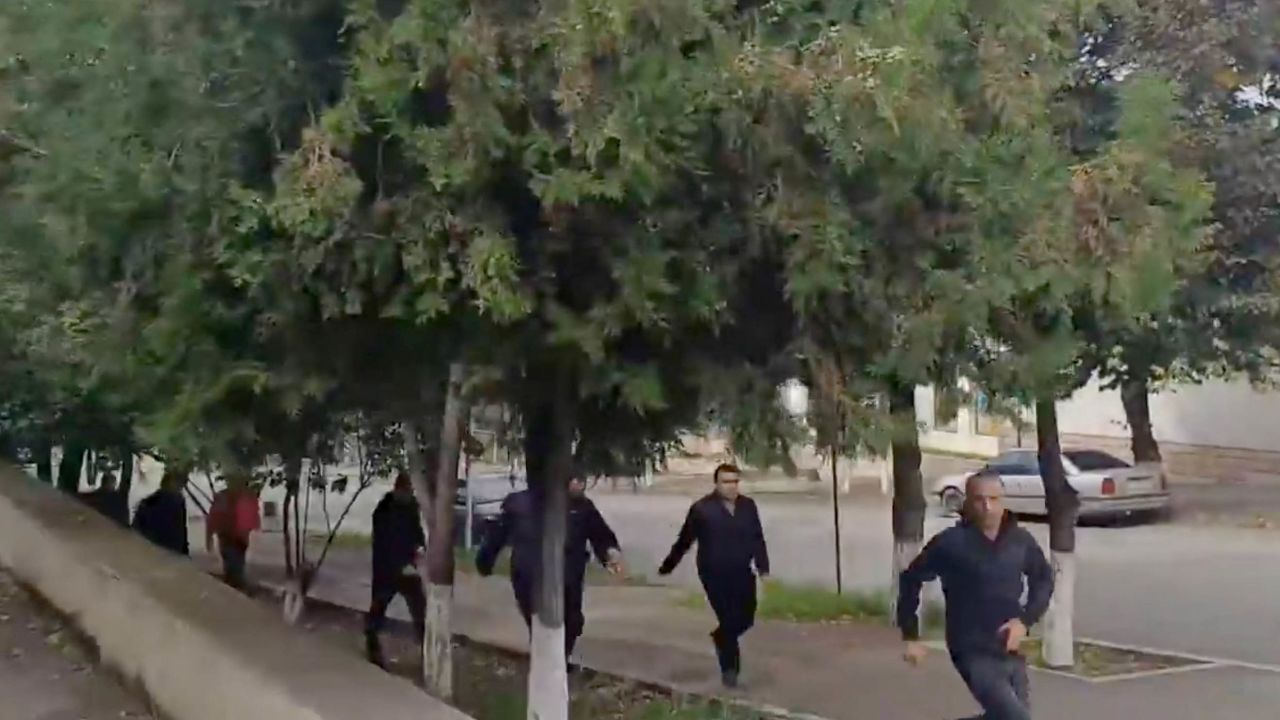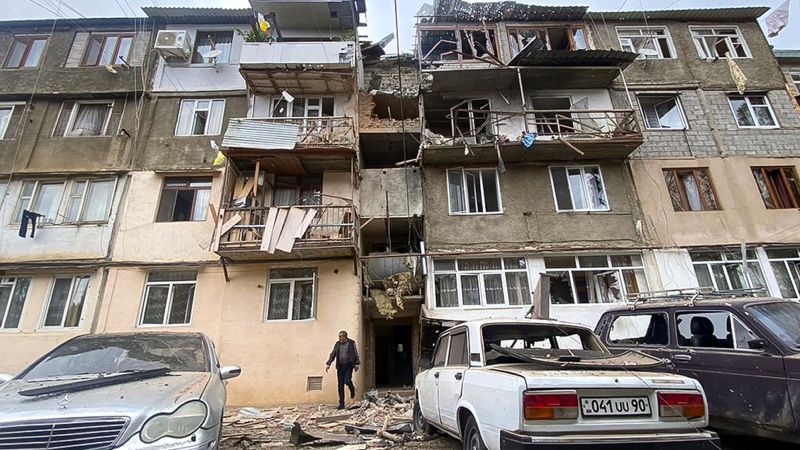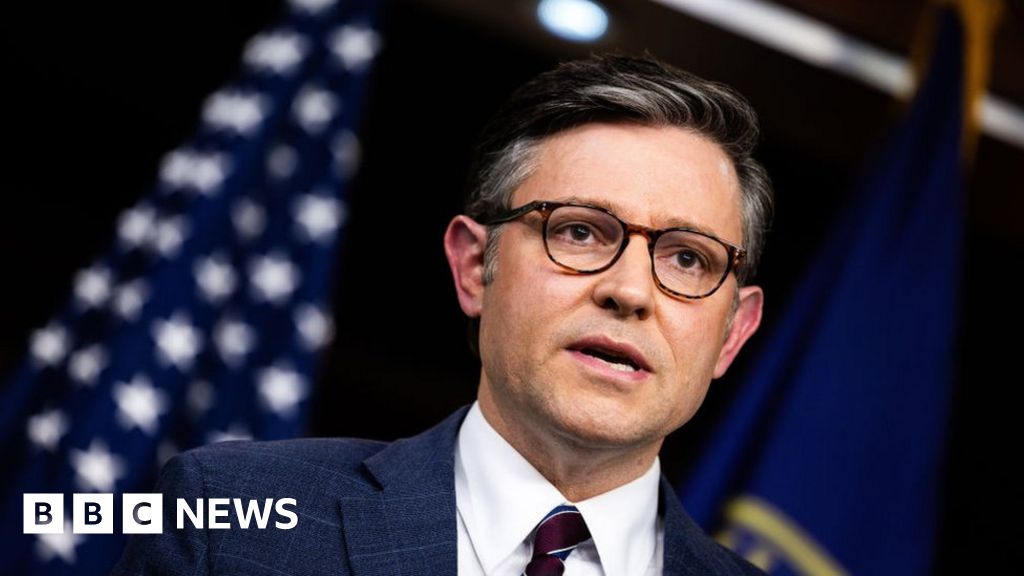CNN
—
At least 32 people have been killed and 200 others wounded in a military operation by Azerbaijan in the disputed Nagorno-Karabakh region, according to an official in Armenian-controlled territory there.
Azerbaijan’s defense ministry said Tuesday it had begun an “anti-terrorist” campaign in the region, an ethnic Armenian enclave that is internationally recognized as part of Azerbaijan and which has been the cause of two wars between the neighbors in the past three decades, most recently in 2020.
Gegham Stepanyan, the ombudsman in Nagorno-Karabakh, said at least seven civilians had been been killed, including two children, and at least 35 others were injured in the operation after Armenian media and local authorities reported heavy bombardment of the regional capital of Stepanakert.
Tensions have been simmering around the region for months, after Azerbaijani troops blockaded the Lachin corridor in December, cutting off the only road connecting Nagorno-Karabakh to Armenia and preventing the import of food to its roughly 120,000 inhabitants.
Russian peacekeepers, who deployed to Nagorno-Karabakh under the terms of the 2020 ceasefire, have been tasked with preventing a fresh conflict breaking out. But Moscow has been accused of being unable or unwilling to intervene to protect Armenia, its long-term ally, in the face of continuing aggression from Azerbaijan.
Karabakh authorities said they have asked for immediate talks with Azerbaijan, amid continued shelling of the region.
In response, the Azerbaijani Presidency said it is willing to meet with Karabakh Armenians, but added in a statement: “To stop anti-terrorist measures, illegal Armenian armed groups must raise the white flag, surrender all weapons, and the illegal regime must dissolve itself. Otherwise, anti-terrorist measures will be continued until the end.”
CNN has been unable to verify the claims of either side in the conflict.
An Azerbaijani presidential adviser on Tuesday played down reports of civilian casualties inside Nagorno-Karabakh, but said “collateral damage” is a possibility in any military operation.
Confronted with reports of civilian casualties during Azerbaijan’s military operation in the disputed region on Tuesday, Hikmet Hajiyev, a political adviser to the president of Azerbaijan, told CNN’s Matthew Chance in an exclusive interview that he doubted their accuracy.
Hajiyev also said that Azerbaijan’s “counterterrorism action” against Nagorno-Karabakh’s Defense Army was triggered by the death of six people in landmine explosions inside Azerbaijan, including two civilians and four police officers.
“The Azerbaijani government has made a decision to start with an unlimited, but local counterterrorism actions and measures on the ground to neutralize finally the military installations of military infrastructure that illegally exists on our territory,” Hajiyev said.
He stressed that the military action would not stop until military forces inside the Nagorno-Karabakh disarm and “raise a white flag.”
Azerbaijan’s defense ministry demanded in a statement Tuesday “the complete withdrawal of ethnic Armenian troops and the dissolution of the government in Stepanakert” and said only “legitimate military targets are being incapacitated.”
“The only way to achieve peace and stability in the region is the unconditional and complete withdrawal of the Armenian armed forces from the Karabakh region of Azerbaijan and the dissolution of the puppet regime,” it said.
The ministry claimed its army had come under “systematic shelling” from Armenia’s armed forces, and that Armenia had fortified its positions, “bringing units to a high level of combat readiness.” It also alleged that mines had been planted in previously de-mined areas, and had already caused the death of two civilians.
Armenia’s foreign ministry has rejected claims that the Armenian army was in Nagorno-Karabakh.
“Armenia’s assistance to Nagorno-Karabakh is of a humanitarian nature, the need for which is further confirmed by the humanitarian crisis caused by the illegal blockade of the Lachin corridor,” it said in a statement.
Armenian news agency Armenpress reported that Nagorno-Karabakh’s army, which is not part of Armenia’s armed forces, is “displaying ‘resolute resistance’ to the Azeri military’s attempts to advance.”
Armenian Prime Minister Nikol Pashinyan has convened a meeting of the Armenian Security Council against the backdrop of the situation in Karabakh.
Armenian news agency Armenpress said the city of Stepanakert City was under heavy Azerbaijani bombardment, and that mobile and internet connection had been disrupted.
“Recently, the Azerbaijani side has been carrying out daily troop transfers and stockpiling of various weapons, which were accompanied by intensive information and propaganda activities, preparing the ground for large-scale aggression against Artsakh,” the Foreign Ministry of Artsakh – the local term for Nagorno-Karabakh – said in a statement.
“Now we are witnessing how Azerbaijan, in order to implement its policy of genocide, is moving towards the physical destruction of the civilian population and the destruction of civilian objects.”

The previous war, which ended in a crushing defeat for the de-facto Nagorno-Karabakh state backed by Armenia’s government, lasted 44 days, before a Moscow-brokered ceasefire ended the conflict.
The deal provided for around 2,000 Russian peacekeepers to deploy to Nagorno-Karabakh to guard the Lachin corridor. But Russia’s peacekeepers did not prevent Azerbaijani troops from establishing a military checkpoint along the corridor, stopping the import of food to the enclave.
Earlier this month, Pashinyan said Azerbaijan had concentrated troops on the border with Armenia and the dividing line with Nagorno-Karabakh, and warned of a possible escalation.
“Over the past week, the military-political situation in our region has deteriorated significantly,” Pashinyan said. “The reason is that Azerbaijan has been accumulating troops along the contact line of Nagorno-Karabakh and the Armenian-Azerbaijani border for several days now.”
European Parliament President Roberta Metsola on Tuesday described the sudden escalation of conflict as “Russia at play,” telling CNN’s Isa Soares that it’s “no coincidence” that the tensions escalated as world leaders gather in New York for the United Nations General Assembly.
“The European reaction is absolutely clear. Full condemnation of the actions that we saw earlier today in Karabakh, complete request for cessation of activities,” he said – a position echoed by the French foreign ministry and NATO chief Jens Stoltenberg.
The European Union’s High Representative for Foreign Affairs Josep Borrell also condemned the attack, saying “military escalation should not be used as a pretext to force the exodus of the local population.”
US Secretary of State Antony Blinken called for called for Azerbaijan to immediately cease its military actions, saying in a statement Tuesday that the United States is “deeply concerned.”
Turkey, a close ally of Azerbaijan, however, defended Baku’s actions, saying Azerbaijan’s government “found itself compelled to take necessary measures on its sovereign territory.”
“Continuation of negotiation process between Azerbaijan and Armenia is only way to establish peace, security, prosperity and permanent stability in the region,” the Turkish ministry stressed in its statement, according to Turkish state media TRT.
The Russian Foreign Ministry said it was deeply alarmed by the sharp escalation in the region, and urged parties to “stop the bloodshed.”
“(The) Russian side urges the conflicting parties to stop the bloodshed, immediately cease hostilities and return to the path of political and diplomatic settlement,” foreign ministry spokeswoman Maria Zakharova said Tuesday, claiming the Russian peacekeeping contingent “continues to fulfill its tasks.”
Kremlin spokesperson Dmitry Peskov also expressed “concern about the sharp escalation of tensions and the outbreak of hostilities,” and called for Armenia and Azerbaijan to adhere to the tripartite agreements signed after the war in 2020.
Russian peacekeepers evacuated more than 2,000 civilians, including 1,049 children, and provided them with temporary shelter and medical assistance overnight Tuesday, Russia’s defense ministry said on Telegram. “We inform you that there is no need for movements at this moment, and we urge everyone to maintain safety rules and remain in bomb shelters,” it said.
Russian state media TASS also reported that Russian peacekeepers had recorded numerous ceasefire violations on Tuesday by Azerbaijan, citing information from Russia’s defense ministry.
But Pashinyan criticized Russia for not alerting his government about Azerbaijan’s plans to launch military action.
“We haven’t received any information from our partners in Russia about that operation,” Pashinyan was quoted by Armenpress as saying, describing this as “strange and perplexing.”
“Azerbaijan has essentially launched the ground operation to subject the Armenians of Nagorno-Karabakh to ethnic cleansing,” Pashinyan said. “We believe that the Russian peacekeeping forces should first of all take measures, and second of all we expect the UN Security Council to take measures as well.”
Azerbaijan’s aggression comes amid what analysts have said may be fraying ties between Russia and Armenia, which have long been the closest of allies.
Armenia has for decades trusted Russia as the sole guarantor of its security, which Russia purports to provide through the Collective Security Treaty Organization (CSTO), a military alliance of post-Soviet states that includes Armenia but not Azerbaijan.
But Armenia has grown frustrated by Russia’s unwillingness or inability to defend it against Azeri aggression, as ties between Moscow and Baku have grown.
With Russia failing to deliver on its commitments, Armenia has recently started to attempt to explore new international partnerships, from hosting joint military exercises with the United States to sending humanitarian aid to Ukraine – in a series of actions the Russian foreign ministry described as “unfriendly.”

Gregory Daniels is your guide to the latest trends, viral sensations, and internet phenomena. With a finger on the pulse of digital culture, he explores what’s trending across social media and pop culture. Gregory enjoys staying ahead of the curve and sharing emerging trends with his readers.








